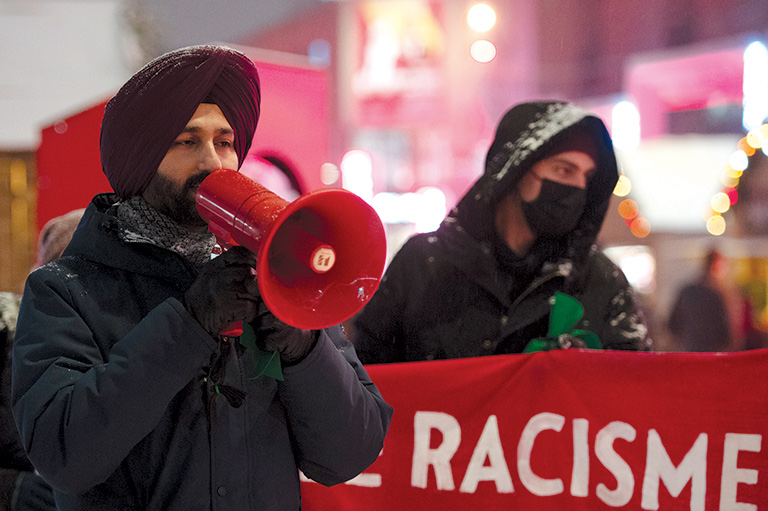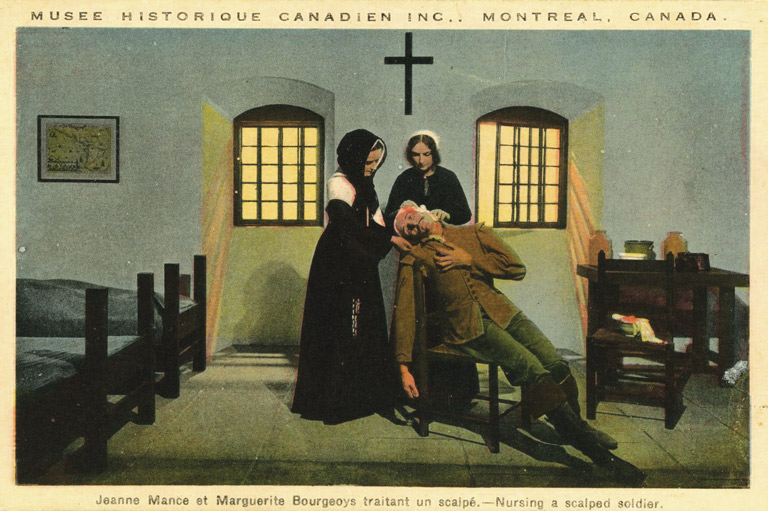Challenging Secularism

If Quebec’s religious history in earlier centuries centred around the Catholic Church, its more recent story is one of an increasingly diverse society and growth in non-Christian religions, fuelled mainly by increased immigration. It is against this backdrop that the legal challenge to Quebec’s 2019 secularism law (Loi sur la laïcité de l’État) is playing out.
It’s a battle that culminates in a hearing in the Quebec Court of Appeal, slated to begin on November 7, where a panel of judges must rule on whether residents working in some public-sector jobs can be prohibited from wearing religious symbols at work, including hijabs, niqabs, turbans, kippahs, and crosses.
“For me, the Islamic veil is a form of spirituality,” Ichrak Nourel Hak, a Moroccan-born Canadian who obtained a teaching diploma in 2020, wrote in a court submission. She is among the educators, Crown lawyers, judges, police officers, and others in positions of authority who are personally affected by the law.
Nourel Hak is the main litigant in the court case, launched jointly with the Canadian Civil Liberties Association (CCLA) and the National Council of Muslims. The law “unfairly targets religious minorities who express their faith through what they wear,” they assert in a court brief. The legislation, they argue, has a disproportionately harmful impact on Muslim women who wear a hijab and who aspire to be teachers in Quebec schools.
Islam is Canada’s fastest-growing religion. Muslims accounted for 4.9 per cent of the Canadian population in 2021, Statistics Canada reported. According to the census, in 2001 Muslims made up 1.5 per cent of Quebecers; that number grew to five per cent of Quebecers in 2021. As well, in 2021, one per cent of Quebecers were Jewish, while fewer than one per cent of Quebecers belonged to either the Hindu, Sikh, or Buddhist religions. In August 2022 Leger and the Association for Canadian Studies polled 632 Quebec Muslims and found the majority of the women surveyed felt less safe and less welcome in Quebec since the passage of the secularism law.
In a submission to the Committee on Institutions of Quebec’s National Assembly prior to the passage of Bill 21, the World Sikh Organization of Canada argued that the bill was “both morally and legally offensive.”
“The separation of the State and religion is not accomplished by requiring citizens to divest themselves of articles of clothing but is premised in fundamental equality and equity in the way the State interacts with citizens,” the submission said. “The State does not become neutral by targeting particular faiths and communities; doing so in fact frustrates that objective. Allowing all citizens, regardless of their faith, to have the same opportunities is the true manifestation of equality.”

During the hearings on the bill in May 2019 at the National Assembly, representatives of the Centre for Israel and Jewish Affairs argued the law was not only discriminatory but also unnecessary, because state secularism was not under threat in Quebec and there was no evidence that civil servants who wore religious garb had breached their duty of impartiality toward the public.
The legal challenge mounted by the secularism law’s opponents is complex, because the Quebec government has invoked the constitution’s rarely used notwithstanding clause, a safety valve for lawmakers that permits them to pass laws that violate the Canadian Charter of Rights and Freedoms. However, the clause does not apply to all sections of the Charter, so the appeal court will consider arguments dealing with parts that cannot be overriden.
Two intervening women’s groups — the Fédération des femmes du Québec and the Legal Education and Action Fund — say the law infringes the Charter’s Section 28, which mandates that established rights and freedoms be implemented without discrimination between the sexes. The seldom-invoked section normally takes a back seat to more general equality guarantees protected in Section 15. A key difference in this case is that Section 28 is outside the reach of the notwithstanding clause.
The two groups note that Justice Marc-André Blanchard, in his 2021 decision in the Quebec Superior Court, issued a harsh critique of the secularism law. Blanchard condemned it as having “a cruel consequence that dehumanizes those targeted,” particularly Muslim women. While he ruled that the law violates the Charter’s guarantees of freedom of religion and freedom of expression, he concluded it was nonetheless legal because the Quebec government had invoked the notwithstanding clause. Blanchard did find that the legislation cannot be applied to teachers in anglophone schools, because minority-language guarantees in the Charter are exempt from the notwithstanding clause.
The appeal is also an important test of the constitution’s “architecture” — broad, overarching constitutional principles that are both written and unwritten. The CCLA and the National Council of Muslims say the principles at stake include equal access to public institutions and promoting and enhancing the multicultural heritage of Canadians. Thus, the secularism law “violates the constitutional architecture” and is not protected by the notwithstanding clause, they write.
With 7 uniquely curated newsletters to choose from, we have something for everyone.
Themes associated with this article
Advertisement




